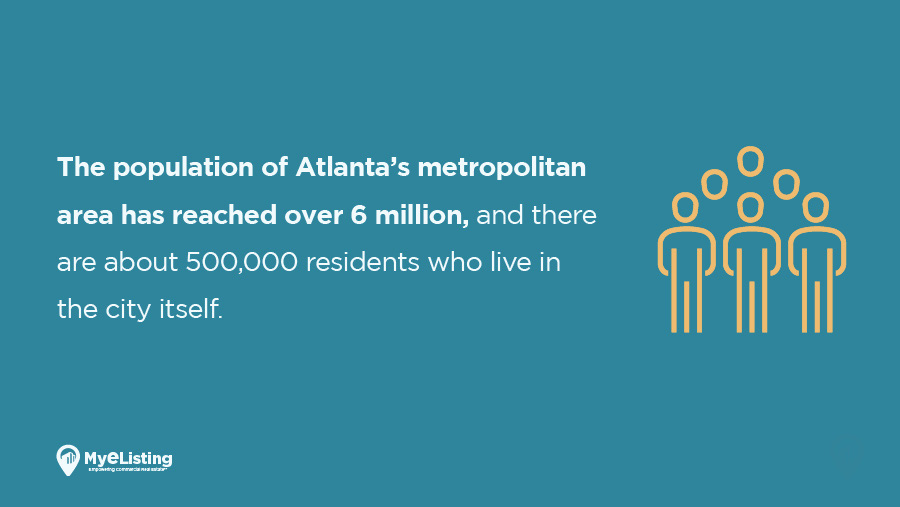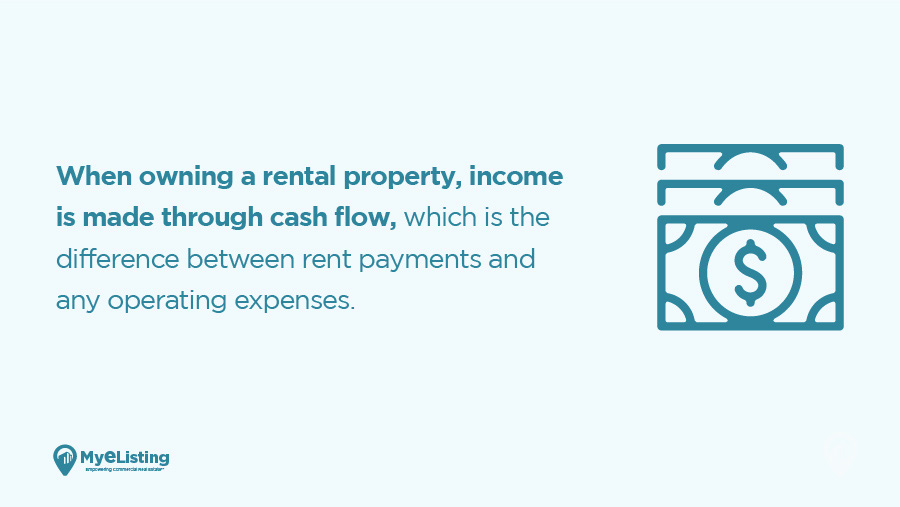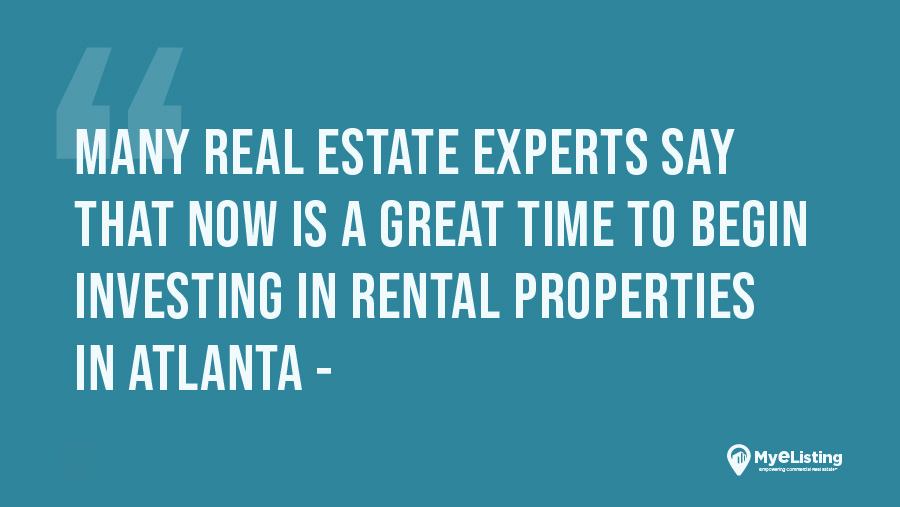Guide to Buying Rental Property in Atlanta, GA

Specializes in providing actionable insights into the commercial real estate space for investors, brokers, lessors, and lessees. He covers quarterly market data reports, investment strategies, how-to guides, and top-down perspectives on market movements.

Atlanta, Georgia’s housing market has been on the rise in recent years. The city’s population has been growing due to a growing job market and lower costs of living compared to other major cities.
Therefore, the city presents prime opportunities for real estate investors looking to pick up some rental properties.
Let’s review the steps a real estate investor should take if they want to invest in rental properties in Atlanta.
Area Overview & Population Demographics of Atlanta

The population of Atlanta’s metropolitan area has reached over 6 million, and there are about 500,000 residents who live in the city itself. The population growth in Metro Atlanta is expected to continue, adding nearly 3 million new residents by 2030.
Overall, Georgia’s capital is considered a great place to start a family and a career. Atlanta’s market is hot with single-family rental homes, which is great for young families or couples who are ready to start their family in a forever home, making the demand for single-family homes to rent high in the area.
Atlanta’s Job Market & Thriving Industries
The city has opportunities for most jobs, boasting a large tech and creative industry. Despite the fact that Atlanta’s job market is quite competitive, there is ample opportunity for entry-level and corporate jobs.
The restaurant and service, travel and hospitality, and the film/arts industries are just some examples. Other major industries that Atlanta represents are agribusiness, energy, film, and aerospace.
The film industry, in particular, is very popular: It’s projected that the city will create 1.2 million new jobs by 2050.
Is buying rental property a good investment?
While buying rental property can be a very lucrative way to make passive income and build an investment portfolio, it’s not something that can be done without proper planning and education.
With enough planning, self-education, and assembling the right team, you can make owning rental property a profitable, long-term investment.
How much money do you make owning rental property?

When owning a rental property, income is made through cash flow, which is the difference between rent payments and any operating expenses. As such, how much passive income you generate per month may vary.
When it comes to income from rental properties in Atlanta, it varies from neighborhood to neighborhood: In the more affordable neighborhoods, rent may be at least $874 per month.
However, rent may be as high as $5,000 per month in the most expensive neighborhoods.
Keep in mind that your net profits from these rent payments will come after you’ve deducted operating expenses, debts, and taxes.
#1 – Decide on Your “Why”
It goes without saying that owning rental properties requires large time and resource investments. You must stay dedicated and committed, especially if you want to generate as much passive income as possible.
In most cases, people choose to invest in the real estate industry for decent passive income, tax write-offs, and asset diversification. But deciding on your own personalized reasons for investing is the most important step before anything is invested.
If you are someone who is financially capable and willing to make the commitment it takes to own a rental property, this could be a lucrative investment option for you.
#2 – Decide What You Can and Can’t Afford
Speaking of finances, it should be no surprise that money must go into owning a rental property for passive income to be made, and it can be quite easy to overestimate how much money you have available for your investment property.
The last thing you want is to lock yourself into an expensive mortgage without enough monthly cash flow to pay it down. And with interest rates on the rise, average mortgage rates are approaching 7%.
Therefore, it’s important to assess how much of your own assets you are willing to put into your investment property. And, if you know you’ll be borrowing money to make the investment, you’ll need to conduct extensive research on your financing options.
Research Financing
There are various ways that you can finance your investment properties. Typically, there are four types of loans that can be taken out for investment property:
- Conventional bank loans: Your credit score and history will impact how much you can get approved for and how much interest is on the mortgage. The down payment for this loan is typically 30%.
- Hard money loans: These loans are short-term and mostly used for flipping an investment property rather than buying and renting it out. They typically have a high interest rates and short repayment terms.
- Private money loans: These are loans that are given from one person to another. In most cases, they are from friends or family members, but they can also be given by anyone in your local real estate investing network. The loan terms and interest rates vary from situation to situation.
- Home equity loans: Drawing from home equity can be done via a home equity loan, home equity line of credit (HELOC), or cash-out refinancing. Up to 80% of a home’s equity value can be borrowed and used for investor needs.
Each loan has its requirements that need to be met, so learning as much as possible about each loan type can help you choose which one is best for your needs.
#3 – Assemble the Right Team
Even the most successful investors have a team of professionals to help them in areas that may not be their strong suits. Local real estate agents, appraisers, and attorneys are just some of the professionals that an investor can benefit from working with.
Working With Commercial Real Estate Brokers
Investors can benefit from working with real estate brokers in several ways: Brokers have access to exclusive local market intelligence as well as more experience and training than other real estate agents.
Full-time brokers can provide investors with additional investment properties (sometimes before they’re even on the market) to ensure that an investor grabs a property before competitors do.
Plus, they’ll likely have plenty of experience in making and negotiating deals as well as investing in property.
Working with Commercial Real Estate Attorneys
All real estate investors can benefit from having an attorney on their side. Commercial real estate attorneys have the knowledge and experience to protect you and your portfolio from legal issues.
Commercial real estate law, leases, contracts, and agreements are usually complex and beyond the scope of your average investor. As such, having a commercial real estate attorney on your side will help protect yourself and your investments from unnecessary legal headaches.
#4 – Decide on the Right Time to Buy

Many real estate experts say that now is a great time to begin investing in rental properties in Atlanta, especially if you do your research and invest in the right areas.
Atlanta’s urban areas are expanding vastly due to the population’s desire to be closer to work and amenities.
However, keeping your finances and schedule in mind is important. Even though now is a great time to invest, your wallet, assets, and financing capabilities may say otherwise.
Do your research, stay diligent, and happy investing.
List & Browse Commercial Real Estate for Free on MyEListing.com!
You can list and browse commercial real estate for free simply by signing up for a free account right here on MyEListing.com.
You’ll get unlimited access to accurate local market intelligence, demographics reports, unlimited listings, and more.
Article Search
Share
All Article Categories








